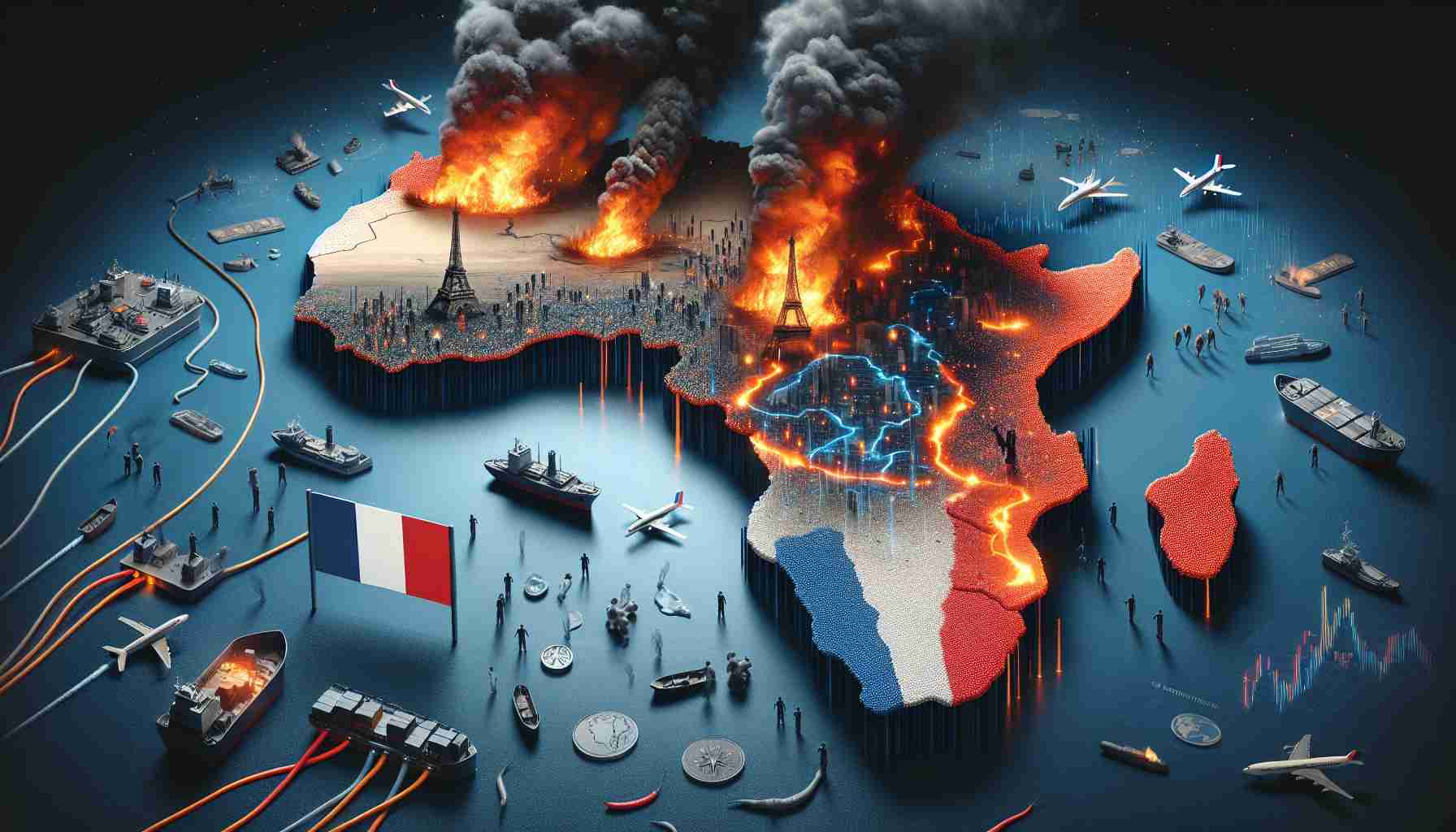The tumultuous relationship between France and Africa is marked by conflict, betrayal, and history. Recently, French President Emmanuel Macron ignited a firestorm with comments about France’s military intervention in Africa, citing the fight against terrorism as the primary reason for France’s presence since 2013. He implied that African nations have failed to express gratitude for French efforts during a time of increasing jihadist threats, particularly in Mali, Burkina Faso, and Niger.
In response, the Chadian government expressed profound concern, accusing Macron of disrespecting Africa and recognizing French actions as self-serving rather than genuinely beneficial. They emphasized the need for France to acknowledge the sacrifices made by Africans throughout history.
Senegalese Prime Minister Ousmane Sonko took a firmer stance, declaring Macron’s claims about a negotiated withdrawal from Senegal as erroneous, firmly asserting the nation’s independence. He chastised Macron for failing to recognize the contributions of African soldiers during World War II, underscoring the historical injustice represented by France’s actions.
The haunting memory of the Thiaroye massacre, where Senegalese soldiers were killed by French troops, continues to resonate deeply within Senegalese society. This incident has shaped a narrative of betrayal and underscores the enduring scars of colonialism.
The fallout from Macron’s comments reflects a growing rift and sheds light on the broader struggle for respect and recognition that many African nations demand from their former colonial power.
The Hidden Struggles of France-Africa Relations: Unpacking Macron’s Controversial Statements
The Complex Dynamics Between France and Africa
The relationship between France and Africa has long been characterized by a blend of collaborations, tensions, and historical grievances. Recent comments by French President Emmanuel Macron regarding France’s military presence in Africa have sparked controversy and reignited discussions about colonial legacies, national sovereignty, and the fight against terrorism.
Key Features of France’s Military Involvement
Since 2013, France has been actively involved in military operations in various African nations, primarily targeting jihadist threats. This presence aims to bolster security in the Sahel region, specifically in countries like Mali, Burkina Faso, and Niger. However, the reliance on foreign military intervention raises questions about the effectiveness and long-term consequences of such actions.
Ongoing Political Controversies
Macron’s remarks suggested that African nations have not adequately expressed gratitude for France’s military interventions. These comments have been met with backlash from several African leaders. For instance, Chad’s government condemned Macron’s viewpoint, emphasizing a need for mutual respect and recognition of the sacrifices made by African countries in their struggles for independence.
Historical Context
The Thiaroye massacre of 1944 remains a poignant reminder of the violent colonial history between France and its former African colonies. This tragic event, where Senegalese soldiers were killed by French troops, symbolizes the ongoing wounds of colonial rule, affecting modern-day perceptions and interactions.
African Leaders’ Reactions
Ousmane Sonko, the Senegalese Prime Minister, strongly rejected Macron’s statements, reaffirming Senegal’s autonomy and the role of African soldiers in historical conflicts, including World War II. His comments echo a broader sentiment shared by many African leaders who advocate for a re-evaluation of how former colonial powers perceive and interact with their erstwhile colonies.
Insights into Current Trends
As discontent with French policies grows, many African nations are seeking to redefine their relationships with former colonial powers, leading to a notable shift towards fostering partnerships based on equality and mutual respect. This evolving dynamic highlights a key trend in international relations, where nations aspire to maintain their sovereignty while collaborating on security and economic matters.
Future Predictions for France-Africa Relations
The trajectory of France-Africa relations is poised to change. Factors such as increasing anti-French sentiment in parts of Africa and the emergence of new global players in African markets could reshape diplomatic ties. Countries are likely to demand fairer negotiations and respect for their sovereignty, placing pressure on France to adapt its approach.
Market Analysis
As nations across Africa reevaluate their dependencies, there is an increasing push towards local solutions and collaborations with non-Western countries. This shift could alter France’s historical influence in the region and drive it to reassess its military and economic engagements.
Conclusion
The relationship between France and Africa is at a crossroads. As Africans continue to grapple with their colonial past and assert their independence, the demand for respect and acknowledgment of historical injustices becomes increasingly persistent. The dialogue sparked by Macron’s comments may serve as a catalyst for a deeper reckoning between France and African nations, shaping future interactions in a rapidly changing global landscape.
For more insights on international relations and evolving geopolitical dynamics, visit World Affairs Journal.
